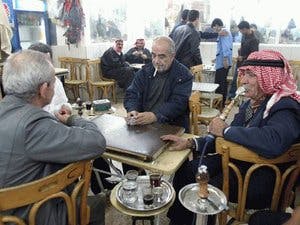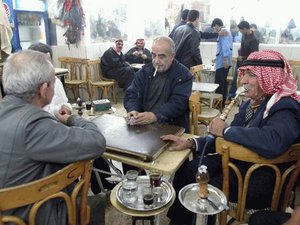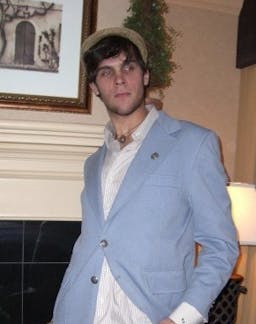Vehicles of Socio-Cultural Activity and a Thirst for Penny Educations: A fantasy year long project proposal!!!
Jan 21, 2015
Story


Coffee is consumed by millions of people at home each morning of the year. Yet, many people prefer to take their coffee, relax, and temporarily step away from the daily bustle of life at their local cozy café. It is within the confines of these cafes throughout the world, in which unique cultures consisting of scholars, artists, philosophers, mathematicians, and musicians, have collided over the years. It is also within the walls of these cafes that the concept of a “penny education” evolved. In areas where university and higher education is a privilege, people from all different walks of life have congregated in informal café settings to share their knowledge, stories, and art, all the while gaining an education for the cost of a cup of coffee which used to be a penny. Oftentimes upon leaving a café, a person feels intellectually stimulated.
If i was given a ton of money to go live in and study something of interest I would go get an international cup of coffee and history. I want to come away with three region-specific penny educations which concern anything from gender and class differences as they relate to café activities, to social functions of the different cafes, to why Evita Peron was turned into such a romanticized, almost mythological figure after her death. I would interact with coffee house cultures in three metropolitan cultural meccas, in three very different regions of the world where coffee is central to daily life – Istanbul, Barcelona, and Buenos Aires. I would immerse myself in two cafes in each city. Upon gaining entrée, I would actively participate in their coffee house activities and discussions, both with locals and travelers to gain a sense of each individual coffee house’s culture. This goal is one of personal education and growth. The second goal/fantasy would be to study how coffee houses influence participation in urban socio-cultural activities, how this influence affects the identity of a café and what measures are used to maintain the café’s identity.
The coffee house café has existed for over 500 years. Its societal roles have varied with each changing generation. The first coffee houses appeared in Istanbul, Turkey during the Ottoman Empire around the fifteenth century after the coffee bean was discovered in Ethiopia. These cafes were considered to be intellectual hubs for men to come and discuss political issues, engage in games, and participate in various other social activities common to daily life from classical music listening to smoking the hookah. By the end of the seventeenth century, coffee houses had spread throughout Europe and served as institutions for the upper classes in which business and politics were conducted. Lloyds of London was formed within the confines of a coffee house.
The nineteenth and twentieth centuries would give rise to new types of coffee houses, ones that were no longer class or gender specific. In Spain, the entire Modernista movement in art came from coffee houses which served as mediums for the poet Sabartés and a Mr. Picasso to express themselves openly and safely. Els Quatre Gats in Barcelona was the cafe that these two men frequented partially because they were inspired by the social interaction taking place, and also, simply put, it was their hangout, their place to relax in comfort and tap into the creative energy that the café was electrified with at the time. In Argentina, some of the country’s greatest artists and writers utilized coffee houses to get creative juices flowing. Jorge Luis Borges and Xul Solar spent large portions of their days within Café Tortoni, a European-style coffee house in Buenos Aires. Internationally and historically, coffee houses have served the role of public space in which community unification and free thought could take place. For some patrons, the café meetings were a source of motivation and activation to follow their dreams. In contemporary times, a similar coffee house story is told. Many U.S. Cafes are cultural arenas where anyone and everyone is allowed to share their individual knowledge, whether it is political philosophy, art, business, something interesting that was just read, or even the exact location and time of a local community event. The contemporary social circles of what is known as “indie”, or independent, culture can be found in coffee houses throughout the United States.
I use culture to mean, the ability of humans in any context to develop languages, methods for interacting, social norms, customs, and attributing meaning to said experience to understand the world around us. I want to explore the culture within specific coffee house and social contexts.
My cultural voyage if ever given a large sum of money would begin in Istanbul, then to Barcelona, and then finally ending in Buenos Aires. I would start each one of my journeys by visiting the historical coffee houses of each city. In Istanbul, I would begin my education at Café Antre and Pierre Loti. In Barcelona, I would frequent Els Quatre Gats, and in Buenos Aires, the Café Tortoni. I choose Istanbul because it is the city where many believe the international café phenomenon all began. I choose Barcelona and Buenos Aires based on my knowledge of their cafe oriented societies. Not only are the movements that took place in the cafes of these cities intriguing but also, coffee and cafes are intrinsically important to daily life in these three cosmopolitan centers. Through a broader lens, the cities that I have would love to visit and live follow the transcontinental flow of coffee house cafes from region to region in the order it traveled historically.
In each country I would begin as follows: First, in addition to visiting the now popular historically significant cafes, I will also research and choose six different off the beaten path coffee houses, two in each city. Two months will be dedicated to immersion in each one. The reason I have chosen cafes off the beaten path is because it is my theory that independent, non-Starbucksesque, cafes not only attract mostly locals but also are more likely to develop unique cultures and café identities. It is my belief that within large city contexts, people try to find ways of making the metropolitan area smaller and more doable. This is why independent cafes and their faithful regulars maintain an existence in this ever increasingly globalized world.
Upon entering the setting, I will passively observe it’s environment and atmosphere, it’s clientele, the activities that take place, the music played, and the art shown. I will take notes in my journal as I develop a feel and basic understanding of my new surroundings. Spending many hours a day, morning, afternoon, and evening at a chosen coffee house will lend me a special privilege, that of being a regular. Becoming a regular should take approximately two weeks. Throughout my integration process I will observe other regulars. These people will become my acquaintances, friends, and teachers. Using a broad anthropological approach, I will have ethnographic conversations with them. I will probably learn about their cultural communities, why they attend this particular coffee house, their favorite coffees, their passions, their history. I would ask them to describe the culture of this particular coffee house, and what the socio-cultural significance of coffee is in their country. I want to know the stories of these café regulars and their perceptions of café life. After I feel content with what I have gained from one coffee house, then I will move on to the next and start the process all over again. In total, four months will be spent in each country’s café environments.
I firmly believe that gaining access to the individual minds of café regulars, attempting to engage them through conversation based interactions about their personal life knowledge, and experiences while simultaneously sharing mine is the ultimate key to furthering both mine and my acquaintance’s understandings of the world around us. I will be the initiator of these conversations but by no means a strict guider of them. The reason for this approach is because A) strictly guiding a conversation impedes upon the natural flow of it; B) I want to remain true to the ethnographic conversation; C) I am certain that I will gain more holistic and well-rounded information and knowledge about each person and what they have to say, through watching, active listening and participating, rather than pursuing information about knowledge that I already possess or attempting to uncover and learn about something that does not exist. To me there truly is something so inexplicably beautiful about the natural flow of these stimulating and participatory interactions that drives my existence forward. I will gain a penny education. However, these interactions could be impaired without foreign language skills.
Given I speak Spanish, I will be able to effectively communicate and interact with café regulars in Spain and Buenos Aires without feeling like a complete outsider. Since I do not speak Turkish, Turkish coffee houses may be more difficult to gain entrée in. However, since Istanbul is quite cosmopolitan, many people speak English. Along with learning some basic Turkish for assistance While in turkey much of my work, at least initially due to the fact that these cafes will be done through extended and careful observation as opposed to the second half which will require more participatory interaction.
Concerning the second aspect of my proposal, I will arrive at an understanding of how each coffee house activates and responds to community participation in local urban socio—cultural activity through both my interactions with patrons who will give suggestions for things to experience, see, or do and also through what types of newspapers, promotions, and advertisements are made accessible to the public at the coffee house. By completely limiting my cultural experiences in each city to what I can find and learn about from within the confines of the coffee house will allow me to gain very specific knowledge as to the types of socio-cultural events that the café owners and patrons support and participate in. This knowledge also speaks to the identity and culture that the individual coffee house wants to be associated with. A method of learning the measures, or steps, that a café takes in identity maintenance will be done through close observation as to the types of informational material that each manager allows to be displayed publicly. As an example, maybe the café only offers the local urban alternative newspaper but not a periodical equivalent to USA Today. This is a statement. It is a statement about it’s identity and the kinds of people who are intended to be attracted to the café. Experiencing what each coffee house has to offer and what socio-cultural activities are made available by each one will allow me to in a sense live temporary lives in accordance with the ideals of each coffee house culture. Along with receiving a penny education from each café the lifestyle driven by the coffee house ideals my holistic learning of coffee houses and their cultures.
My incredible year will conclude with extensive knowledge of how coffee house interaction commences in six off the beaten path cafes within three cosmopolitan urban settings, the types of socio-cultural activities that each café associates with, an understanding of what factors gives a cafe it’s unique identity, and irreplaceable penny educations. I will know much more about political strife in Turkey, the significance of the Whirling Dervishes and Sufi Muslims to the Turkish culture, their native music and history, traditional hookah tobacco flavors, art movements of Spain, the best tapas available and where to purchase them, information about the separatist Catalan movement, famous of Patagonia, the reason Argentinean steak is world renowned, why gauchos lasso capybaras, and not to mention a taste for truly well made coffee.
What would you all do for a year if the resources were available and at your disposal.
cheers,
Brian




